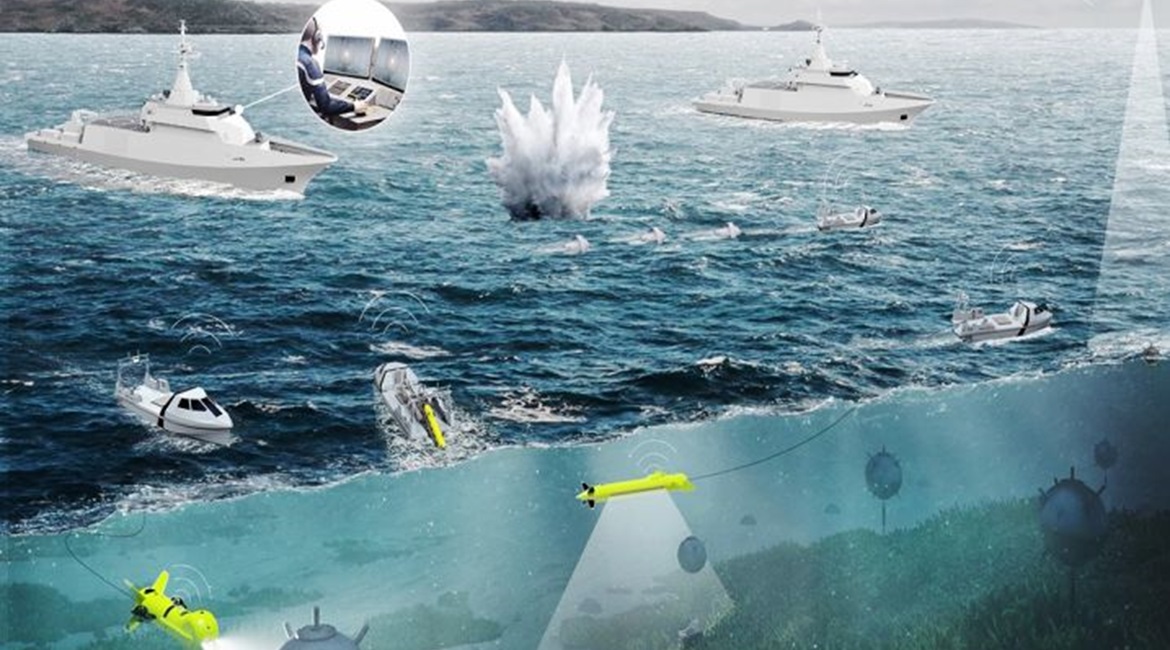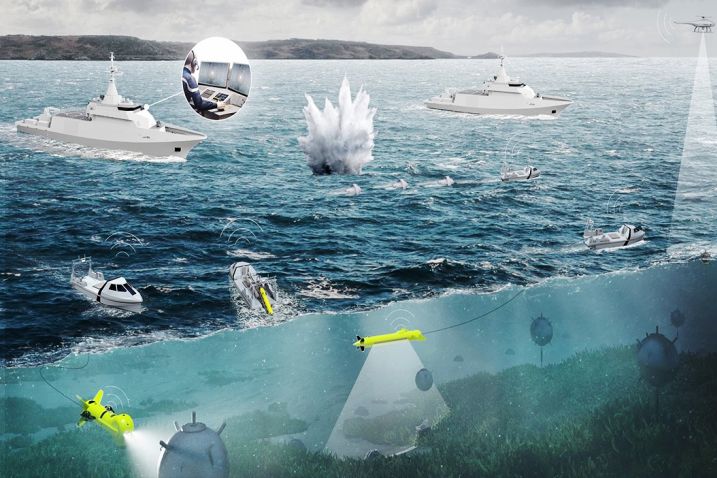
An industry team led by France’s Naval Group has been selected to provide Belgium and the Netherlands (BE/NL) with a next generation stand-off mine countermeasures (MCM) capability based on mother ships employing a ‘toolbox’ of offboard MCM systems.

The BE/NL next generation stand-off MCM capability will be based on mother ships employing a ‘toolbox’ of offboard systems. (Naval Group/Belgian Naval Robotics )
The selection of the Belgian Naval & Robotics consortium – established by Naval Group and French underwater systems and robotics group ECA – was confirmed by the Belgian and Dutch governments on 15 March following an evaluation of rival proposals. A team of Imtech Belgium and Damen, and the Sea Naval Solutions consortium (comprising Thales, STX France, Socarenam, and EDR) had also been vying for the contract.
Being procured by Belgium as the lead nation, the BE/NL future MCM capability is designed to replace five Belgian Naval Component Tripartite minehunters, plus the support ship Godetia , and six Royal Netherlands Navy (RNLN) Tripartite minehunters. The two nations each plan to procure six mother ships, together with associated MCM systems, with the programme valued at about EUR2 billion (USD2.3 billion) overall.
The first of the 12 mother ships is planned to be delivered to Belgium by the end of 2023, with the Netherlands expecting to receive its first unit in 2025. The last platform is scheduled for delivery in 2029. ECA’s MCM toolbox will use unmanned/autonomous components drawn from its own UMIS offboard MCM suite.
The BE/NL next-generation MCM capability requirement has been drawn up against three operational scenarios, both permissive and non-permissive: access to seaports; home and allied sea lines of communication and chokepoint protection; and expeditionary operations including amphibious operations.
Looking to read the full article?
Gain unlimited access to Janes news and more...






